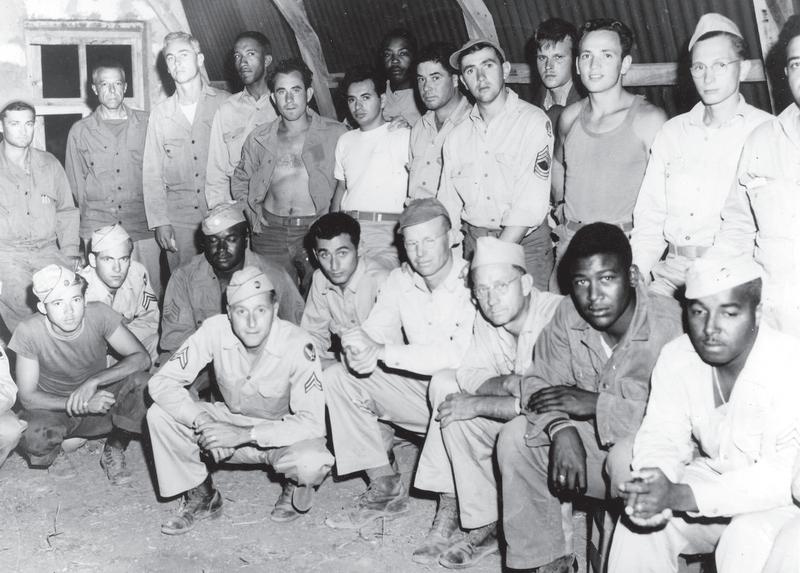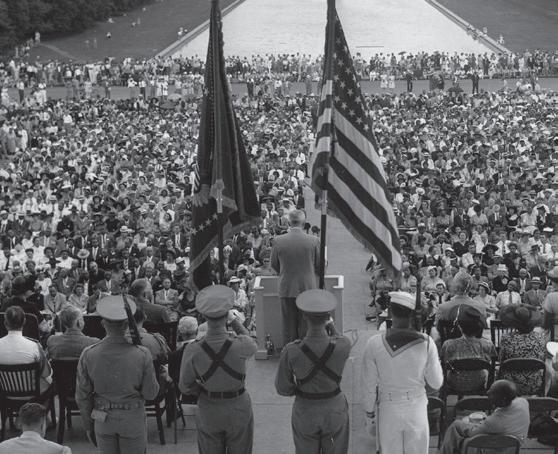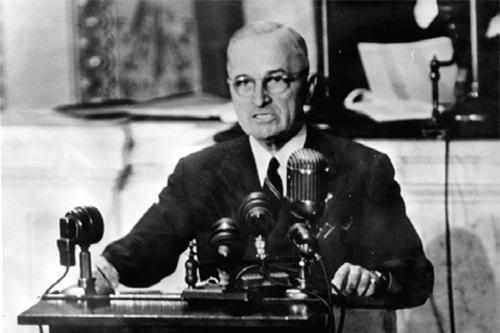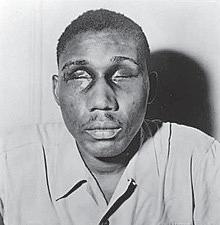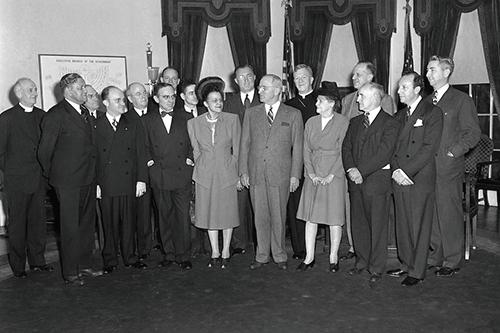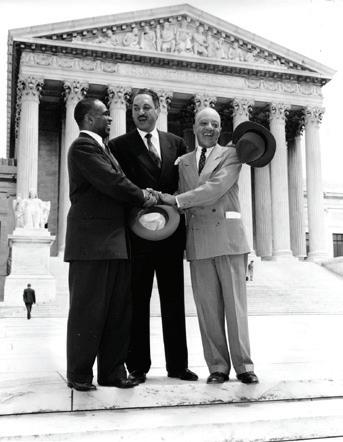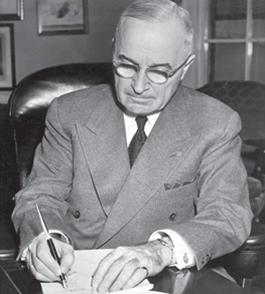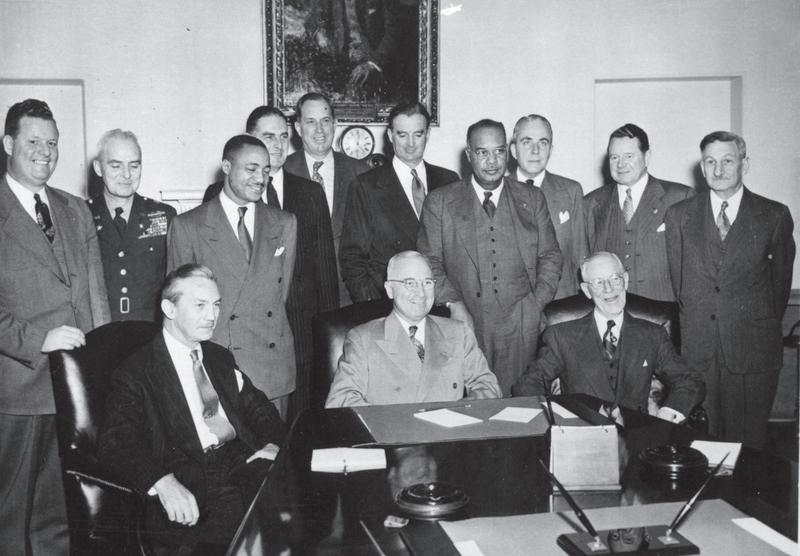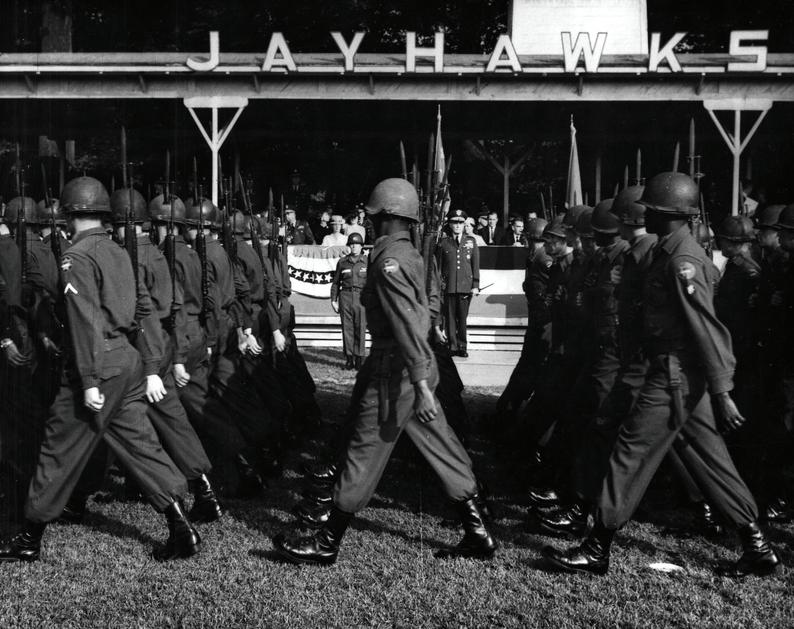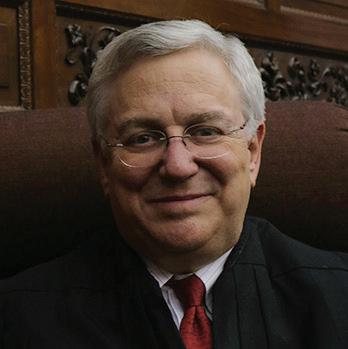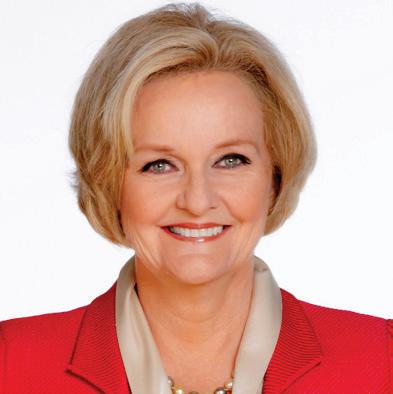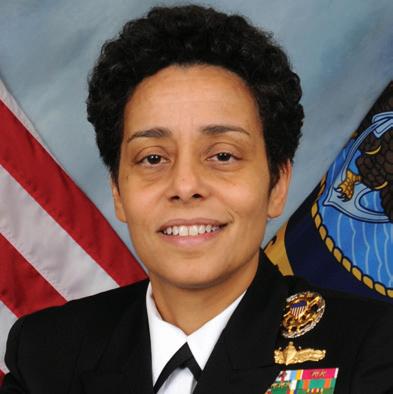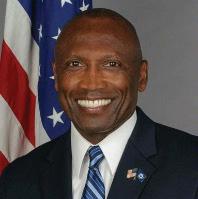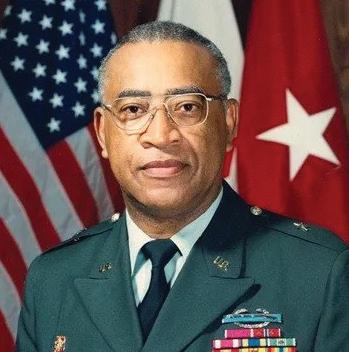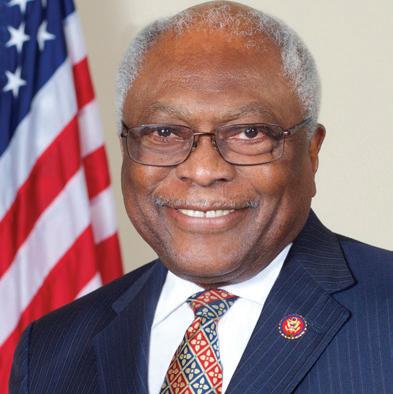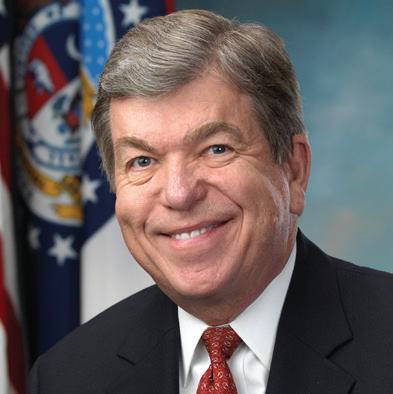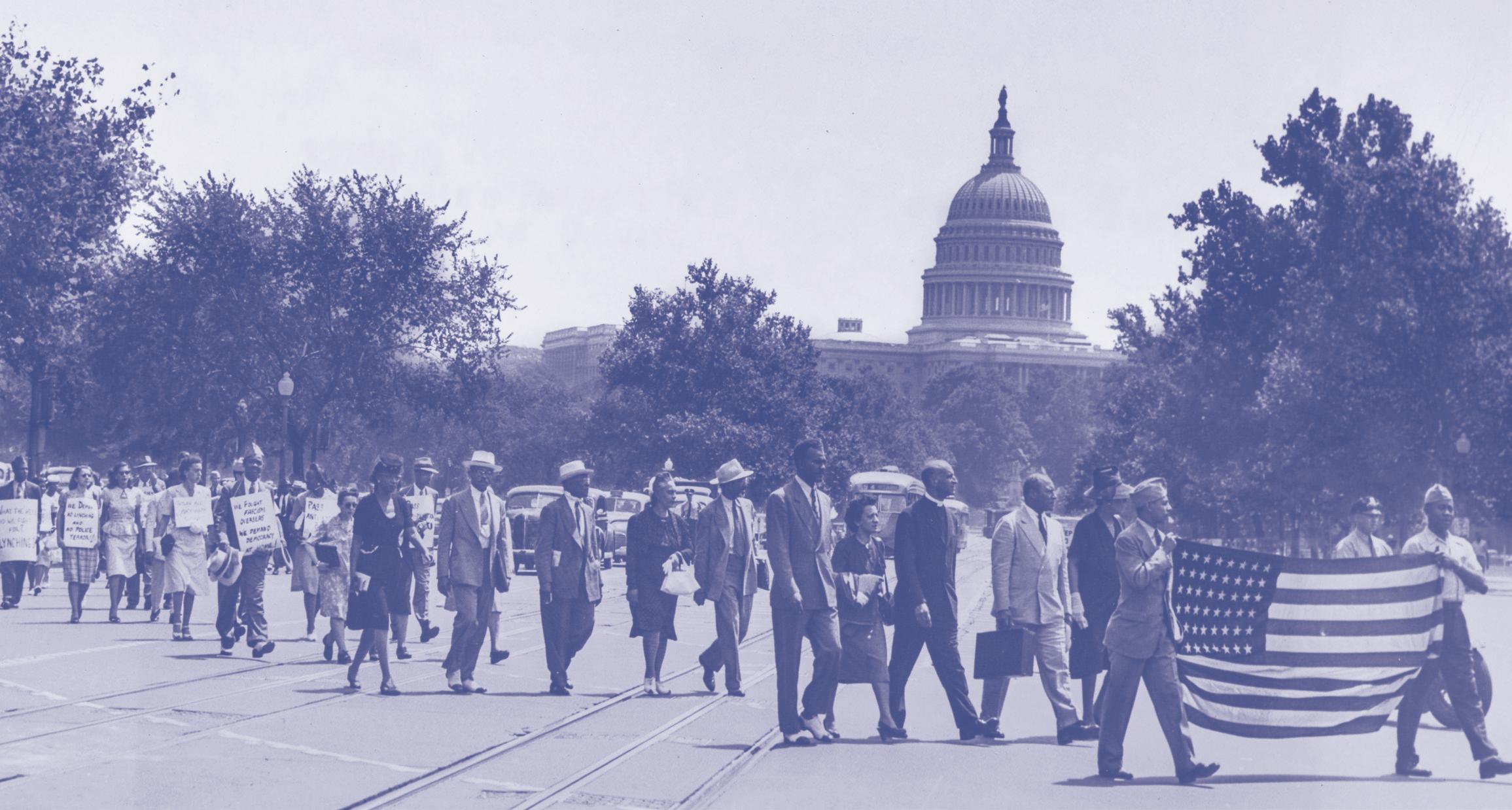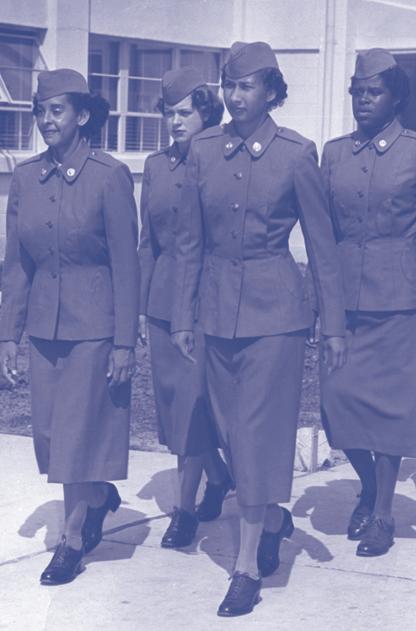TRUMAN CIVIL RIGHTS SYMPOSIUM
A NATIONAL 75TH ANNIVERSARY COMMEMORATION

On July 26, 1948, with the stroke of a pen, President Harry S. Truman changed the course of American history.

By signing Executive Order 9981, “Establishing the President’s Committee on Equality of Treatment and Opportunity in the Armed Services,” he officially declared that “there shall be equality of treatment and opportunity for all persons in the armed services without regard to race, color, religion or national origin.” His action reflected the growing realization by more and more Americans that our nation could no longer reconcile segregation with the values we had fought a war to uphold.
Seventy-five years on, we are gathered in Washington, D.C. to commemorate the anniversary of this watershed moment for advancing civil rights in America.
The significance of this occasion is reflected by the stellar list of participating organizations and individuals, including nationally prominent military and civilian leaders, elected officials, journalists and historians.
Together, we will honor the service and sacrifice of Black veterans, celebrate this landmark decision that paved the road for civil rights legislation and Supreme Court decisions in the 1950s and 1960s, and explore the legacy of President Truman’s executive order “to secure these rights.”
The Truman Civil Rights Symposium is the most ambitious programmatic series in the history of the Truman Library Institute.
As I consider the rich and varied lineup, the peerless expertise of our panels, and the tremendous support provided to not only present but also archive these important national conversations, I am reminded that this history has much to teach us. All it asks in return is that we listen.
I am looking forward to doing just that with each of you.
Thank you for staying TRU,
ALEX BURDEN Executive Director Truman Library InstituteLIBRARY OF CONGRESS
Thomas Jefferson Building, 10 First St SE, Washington DC 20540
7PM RECEPTION
GREAT HALL MEZZANINE
Celebrate the opening of the Truman Civil Rights Symposium with cocktails and heavy hors d’oeuvres on the mezzanine of the Great Hall in the Library of Congress. Select historic documents will be on view for reception guests.
8PM “TO SECURE THESE RIGHTS” OPENING EVENT
GREAT HALL
WELCOME
Clifton Truman Daniel, Honorary Chairman, Truman Library Institute
REMARKS
Participants to be announced
VIDEO REMARKS
President Barack Obama
INTRODUCTION
Alex Burden, Executive Director, Truman Library Institute
PROGRAM
Panelists will discuss post-World War II violence against African American veterans, including the blinding of Sergeant Isaac Woodard, a galvanizing event in President Truman’s civil rights journey and the original impetus for Executive Order 9981.
Librarian Carla Hayden, Moderator Congressman James Clyburn Judge Richard Gergel
GEORGE WASHINGTON UNIVERSITY
Media and Public Affairs Building, 805 21st St NW, Washington, DC 20052
8AM CHECK IN AND COFFEE RECEPTION
ART GALLERY LOBBY
Enjoy a light breakfast and coffee before the program begins.
9AM PROGRAM
JACK MORTON AUDITORIUM
OPENING REMARKS
9:15AM GENERAL SESSION 1
The Black American Experience in the U.S. Armed Forces
The session will explore the history of African American military service from the American Revolution through WWII. Eugene Robinson, Moderator
Dr. Woody Holton, Dr. Lorien Foote, Dr. Adriane Lentz-Smith, Dr. Thomas Guglielmo
10:30AM BREAK AND COFFEE RECEPTION
ART GALLERY LOBBY
11AM GENERAL SESSION 2
The Right to Fight: The Implementation and Impact of Executive Order 9981
The second session will explore President Truman’s decision to desegregate the military and its consequences and impact on subsequent conflicts. Michele Norris, Moderator
Dr. Sabrina Thomas, Dr. David P. Cline, Dr. Kyle Longley, Dr. Robert F. Jefferson
12:30PM LUNCH BREAK
Nearby options include the Western Market Food Hall at 2000 Pennsylvania Avenue NW #3500.
2PM GENERAL SESSION 3
Veteran Voices: Desegregation’s Impact on the Individual Experience
The afternoon concludes powerfully with personal reflections from those whose lives and careers were directly impacted by Executive Order 9981.
Rawn James, Jr., Moderator
Ambassador John Estrada, Admiral (Ret) Michelle Howard, Brigadier General Terrence Adams, Brigadier General (Ret) Donald Scott
NATIONAL ARCHIVES
701 Constitution Avenue, NW, Washington, DC 20408
Special Events Entrance, near the corner of Constitution Avenue and 7th Street, to the right of the stairs
6PM RECEPTION
ROTUNDA GALLERIES
Enjoy a cocktail reception with heavy hors d’oeuvres in the Rotunda Galleries. Executive Order 9980 and 9981 will be on view for reception guests.
PRE-PROGRAM
WILLIAM G. McGOWAN THEATER
WELCOME
Dr. Kurt Graham, Director, Harry S. Truman Presidential Library and Museum
Dr. Colleen Shogan, Archivist of the United States
REMARKS
Admiral Linda Fagan, Commandant of the Coast Guard Additional participants to be announced
PROGRAM
INTRODUCTION
Congressman James Clyburn

SPECIAL ADDRESS
President Joe Biden
NATIONAL MUSEUM OF AFRICAN AMERICAN HISTORY AND CULTURE
1400 Constitution Avenue NW, Washington, DC 20560 Madison Drive entrance between 14th and 15th Streets
8AM CHECK IN AND COFFEE RECEPTION
CONCOURSE ATRIUM
Enjoy a light breakfast and coffee, and visit the museum’s Contemplative Court and newest exhibit, Afrofuturism: A History of Black Futures.
9AM PROGRAM
OPRAH WINFREY THEATER
OPENING REMARKS
Terry Babcock-Lumish, Executive Secretary, Harry S. Truman Scholarship Foundation
9:15AM GENERAL SESSION 4
The Future of Inclusion: Equal Opportunity in Today’s Military—and Tomorrow’s Having looked to the past and into the present lives of Black veterans, the Symposium’s final panel will look ahead to ask where we are going as a nation pledged to human rights and equality, in light of the history of E.O. 9981 and the experiences of African American veterans. Commander Theodore “Ted” Johnson, Moderator Secretary Anthony Woods, Dr. Kori Schake
Captain Cynthia Macri, Lieutenant Colonel (Ret) Jason Dempsey
10:15AM CLOSING
General Charles Q. Brown, Jr., Chief of Staff of the U.S. Air Force
10:30AM SELF-GUIDED MUSEUM TOURS
At the close of the Truman Civil Rights Symposium, attendees are invited to explore the National Museum of African American History and Culture, the only national museum devoted exclusively to the documentation of African American life, history, and culture.
SPEAKERS CURRENT AS OF JULY 15, 2023
For an updated list of speakers and full bios, please scan this code.

WEDNESDAY, JULY 26 LIBRARY OF CONGRESS
OPENING SESSION
Clifton Truman Daniel is the eldest grandson of President Harry S. Truman and First Lady Bess Wallace Truman. Daniel serves as honorary board chair of the Truman Library Institute, board secretary of the Harry S. Truman Scholarship Foundation, and vice president of the Society of Presidential Descendants. He is the author of Growing Up with My Grandfather: Memories of Harry S. Truman and Dear Harry, Love Bess: Bess Truman’s Letters to Harry Truman, 1919-1943 . In addition to portraying his famous grandfather in the oneman stage show, Give ‘Em Hell Harry, Daniel writes and lectures on the Truman presidency.
THE HONORABLE EMANUEL CLEAVER II, U.S. Representative (D-MO 5th District)

U.S. Representative Emanuel Cleaver II is now serving his tenth term representing Missouri’s 5th Congressional District, the home district of President Harry S. Truman. He is a member of the House Financial Services Committee and Ranking Member of the House Subcommittee on Housing and Insurance. During the 112th Congress, he was unanimously elected the 20th chair of the Congressional Black Caucus. Congressman Cleaver serves as an honorary co-chair of the Truman Civil Rights Symposium and was instrumental in spearheading the Truman Statue Campaign led by the Truman Library Institute to install a bronze statue of President Harry S. Truman in the U.S. Capitol Rotunda on September 29, 2022. In 1991, Congressman Cleaver was elected as Kansas City’s first Black mayor after serving for 12 years on the city council.
Alex Burden is the Executive Director of the Truman Library Institute, the member-supported, nonprofit partner of the Harry S. Truman Presidential Library and Museum. For more than two decades under Burden’s leadership, the Truman Library Institute has provided financial, programmatic, creative, and staffing assistance to make the Truman Library a dynamic center for the study of the presidency. Most recently, this includes raising over $55 million for the Stay TRU Capital Campaign, including $30 million for the largest museum renovation since the Library’s doors opened in 1957. Burden also led the Truman Statue Campaign to fund, create and install a bronze statue of President Truman in the U.S. Capitol Rotunda.


DR.
Dr. Carla Hayden was nominated Librarian of Congress by President Barack Obama and confirmed by the U.S. Senate in July 2016. She is the first woman and the first Black American to lead the national library, and the first professional librarian to hold the post since 1974. She was also nominated by President Obama to the National Museum and Library Services Board and confirmed by the Senate in June 2010. Previously, Dr. Hayden served as CEO of the Enoch Pratt Free Library in Baltimore, Maryland. In 1995, she was the first Black American to receive Library Journal’s Librarian of the Year Award in recognition of her outreach services, which included an after-school center for Baltimore teens offering homework assistance and college and career counseling. She received a B.A. from Roosevelt University and an M.A. and Ph.D. from the Graduate Library School of the University of Chicago.

THE
James “Jim” Clyburn is the Assistant Democratic Leader, the third ranking Democrat in the U.S. House of Representatives. Previously, he served in the post from 2011 to 2019 and was elected House Majority Whip twice (2019 to 2023; 2007 to 2010)—the first Black American to serve multiple terms as Majority Whip. He is currently serving his 16th term as the representative for South Carolina’s 6th Congressional District. Growing up in South Carolina during a time of intense racial discrimination and segregation, Congressman Clyburn began his civil rights work as president of the NAACP local youth chapter at age 12. He participated in many demonstrations, including a 1961 march on the South Carolina State House, for which he was jailed. In 1971, he joined the staff of Governor John C. West—becoming the first Black American advisor to a South Carolina governor. Congressman Clyburn’s numerous awards include the NAACP’s highest honor, the Spingarn Medal (2022), and the Harry S. Truman Legacy of Leadership Award (2017). He also serves as honorary co-chair of the Truman Civil Rights Symposium.
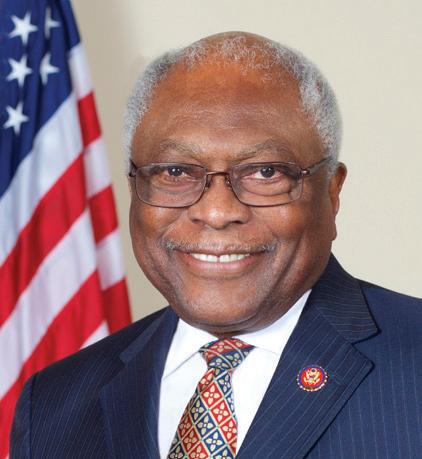
THE HONORABLE RICHARD GERGEL, U.S. District Judge


Richard Gergel is a U.S. District Judge for the District of South Carolina. Judge Gergel was nominated to the U.S. District Court bench by President Barack Obama and was confirmed unanimously by the U.S. Senate in August 2010. He is the author of Unexampled Courage: The Blinding of Sgt. Isaac Woodard and the Awakening of President Harry S. Truman and Judge J. Waties Waring. Judge Gergel currently presides in the same Charleston, South Carolina, courthouse where Judge Waring heard arguments from President Truman’s Justice Department against a police officer who beat and blinded Sgt. Isaac Woodard, a decorated Black World War II veteran, hours after he had been honorably discharged. Judge Gergel’s book was the basis for the PBS American Experience documentary, The Blinding of Isaac Woodard. He earned undergraduate and law degrees from Duke University.
THURSDAY, JULY 27 GEORGE WASHINGTON UNIVERSITY
David Von Drehle is a deputy opinion editor and columnist for The Washington Post where he writes about national affairs and politics. He joined The Post in 2017 after a decade at TIME magazine, where he wrote more than 60 cover stories as editor-at-large. He is the author of a number of books, including Rising to Greatness: Abraham Lincoln and America’s Most Perilous Year ; the award-winning bestseller Triangle: The Fire That Changed America; and most recently, New York Times best seller The Book of Charlie . He serves on the board of directors for the Truman Library Institute.
GENERAL SESSION 1
EUGENE ROBINSON , Columnist, The Washington Post

Eugene Robinson is a Pulitzer-Prize winning writer for The Washington Post where he writes a twice-weekly column focusing on politics and culture that is syndicated in 145 newspapers across the nation. In his threedecade career with The Post, Robinson has been a city hall reporter, city editor, foreign correspondent in Buenos Aires and London, foreign editor, and assistant managing editor in charge of the paper’s Style section. Robinson is the author of Disintegration: The Splintering of Black America (2010), Last Dance in Havana (2004), and Coal to Cream: A Black Man’s Journey Beyond Color to an Affirmation of Race (1999). Robinson is also a commentator on NBC’s “Meet the Press” and appears frequently on MSNBC, CNN, and other media outlets.
DR. LORIEN FOOTE, Professor of History, Texas A&M University
Dr. Lorien Foote is the Patricia and Bookman Peters Professor in History at Texas A&M University. She has written extensively on the cultural, intellectual, and military history of the American Civil War. Rites of Retaliation: Civilization, Soldiers, and Campaigns in the American Civil War (2021) was awarded the Organization of American Historians Civil War and Reconstruction Book Award, and The Yankee Plague: Escaped Union Prisoners and the Collapse of the Confederacy (2016) was a 2017 Choice Outstanding Academic Title. Dr. Foote is also the creator and principal investigator of a digital humanities project, which is mapping the escape and movement of 3,000 federal prisoners of war. Dr. Foote earned a Ph.D. in History at the University of Oklahoma.
 DAVID VON DREHLE, Columnist, The Washington Post
HONORABLE JAMES CLYBURN, U.S. Representative (D-SC 6th District)
DAVID VON DREHLE, Columnist, The Washington Post
HONORABLE JAMES CLYBURN, U.S. Representative (D-SC 6th District)
DR. THOMAS A. GUGLIELMO, Professor and Department Chair of American Studies, George Washington University
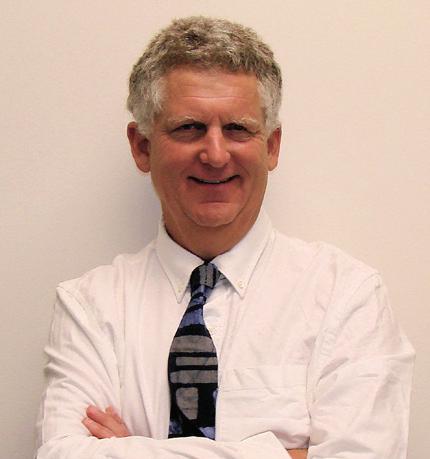
Dr. Thomas A. Guglielmo is Professor and Department Chair of American Studies at George Washington University. His latest book, Divisions: A New History of Racism and Resistance in America’s World War II Military (2021), won the Society for Military History’s Distinguished Book Award. Dr. Guglielmo’s research has been supported by Stanford University’s Research Institute for the Comparative Study of Race and Ethnicity and by Harvard University’s Charles Warren Center for Studies in American History. Dr. Guglielmo earned a Ph.D. in History from the University of Michigan.
DR. WOODY HOLTON, Professor of History, University of South Carolina
Dr. Woody Holton is the Peter and Bonnie McCausland Professor of History at the University of South Carolina and a leading scholar of the American Revolution. Dr. Holton is the author of Liberty Is Sweet: The Hidden History of the American Revolution (2021), which he wrote as the Huntington Library’s Los Angeles Times Distinguished Fellow and as a National Endowment for the Humanities Fellow. He is also the author of Unruly Americans and the Origins of the Constitution (2007), a finalist for the National Book Award; and Abigail Adams (2009), which won the Bancroft Prize. Dr. Holton earned a Ph.D. in History from Duke University.
DR. ADRIANE LENTZ-SMITH, Associate Professor of History and African and African American Studies, Duke University

Dr. Adriane Lentz-Smith is an Associate Professor of History and African and African American studies at Duke University. She is also a Senior Fellow in Duke’s Kenan Institute for Ethics. Dr. Lentz-Smith is the author of Freedom Struggles: African Americans and World War I (2009). She appeared in the PBS American Experience documentary Voice of Freedom and has served as an historical consultant for the BBC HistoryExtra podcast series on the civil rights movement. Dr. Lentz-Smith earned a B.A. in History from Harvard-Radcliffe and a Ph.D. in History from Yale University.
GENERAL SESSION 2
MICHELE NORRIS, Columnist, The Washington Post
Michele Norris is regarded as one of the most trusted voices in journalism. Currently a columnist for The Washington Post, she was host of National Public Radio’s All Things Considered from 2002 to 2012. She later served as a special correspondent covering race and identity in America. Previously, Norris worked for a decade as a television correspondent for ABC News in the Washington Bureau. Norris has won Emmy, DuPont and Livingston awards for her work. In 2009, she was named “Journalist of the Year” by the National Association of Black Journalists and Essence Magazine’s “25 Most Influential Black Americans.” In 2010, Norris started The Race Card Project where she asks people around the world to share their experiences, questions, hopes, laments and observations about identity—in just six words—as the starting point for conversations about race.

DR. DAVID P. CLINE, Professor of History and Founding Director of the Center for Public and Oral History, San Diego State University

Dr. David P. Cline is Professor of History at San Diego State University (SDSU) and the Founding Director of the SDSU Center for Public and Oral History. From 2013 to 2020, he was a Lead Interviewer and Research Scholar for the Civil Rights History Project of the Library of Congress and the Smithsonian Institution’s National Museum of African American History and Culture. His book, Twice Forgotten: African Americans in the Korean War, An Oral History (2022), was nominated for the Oral History Association Book Award and the Museum of African American History Stone Book Award. Dr. Cline earned a Ph.D. in Philosophy from North Carolina at Chapel Hill and M.A. in U.S. History from the University of Massachusetts Amherst.

Dr. Robert Jefferson, Jr., is an Associate Professor of History at the University of New Mexico. He is the author of Brothers in Valor: Battlefield Stories of the 89 African Americans Awarded the Medal of Honor (2018) and Fighting for Hope: African American Troops and the 93rd Infantry Division in World War II and Postwar America (2008), which was nominated for the William Colby Book Prize. He is also the editor of Black Veterans, Politics, and Civil Rights in Twentieth Century America: Closing Ranks (2019). He is currently a residential fellowship at the Woodrow Wilson Center for International Scholars and a recent Truman Library Institute research grant recipient. Jefferson earned a Ph.D. in American History from the University of Michigan.


Dr. Kyle Longley is the Henry Salvatori Professor of American Values and Traditions, Professor of History, and Director of the War, Diplomacy, and Society Program at Chapman University, joining the faculty in 2020 after more than two decades at Arizona State University. He also serves as the executive director of the Society of Military History. Longley has published nine books on topics ranging from the American presidency to U.S.Latin American relations. His most recent works include In Harm’s Way: A History of the American Military Experience (2019) and Grunts: The American Combat Soldier in Vietnam (2008; 2nd edition, 2020). Longley earned an M.A. from Texas Tech University and Ph.D. in History from the University of Kentucky.
Dr. Sabrina Thomas is an Associate Professor of African American History and War and Society at Texas Tech University. Her book, Scars of War: The Politics of Paternity and Responsibility for the Amerasians of Vietnam (2021), was awarded the 2021 “Best First Book” prize from Phi Alpha Theta History Honor Society and was nominated for the Bancroft Prize. Her articles have been published in the Journal of American-East Asian Relations and the Cambridge History of War and Society in America , among others. Previously, Dr. Thomas was the David A. Moore Chair of American History and Associate Professor at Wabash College. She earned a B.A. in History from Colorado State University, M.S. in Counseling from Butler University, and Ph.D. in History from Arizona State University.

GENERAL SESSION 3
Rawn James, Jr. is the author of The Double V: How Wars, Protest and Harry Truman Desegregated America’s Military. The book examines the remarkable history of how the struggle for equality in the military helped drive the fight for equality in civilian society. His previous books include Root and Branch: Charles Hamilton Houston, Thurgood Marshall and the Struggle to End Segregation and The Truman Court: Law and the Limits of Loyalty. A graduate of Yale University and Duke University School of Law, James has practiced law for two decades in Washington, D.C.
Ambassador John Estrada was nominated by President Obama and confirmed by the U.S. Senate to serve as the U.S. Ambassador to Trinidad and Tobago, the country of his birth, from 2016 to 2017. Previously, he served in the Marine Corps for 34 years, most notably as the 15th Sergeant Major, the nation’s highestranking enlisted Marine (2003 to 2007), during the height of the conflicts in Iraq and Afghanistan. Ambassador Estrada also served on the American Battle Monuments Commission and on the board of directors for Operation Homefront.

 DR. ROBERT JEFFERSON, JR., Associate Professor of History, University of New Mexico
DR. KYLE LONGLEY, Professor of History and Director of the War, Diplomacy, and Society Program, Chapman University
DR. SABRINA THOMAS, Associate Professor of History, Texas Tech University
RAWN JAMES, JR., Author and Lawyer
AMBASSADOR JOHN ESTRADA, Former U.S. Ambassador to Trinidad and Tobago, U.S. Marine Corps
DR. ROBERT JEFFERSON, JR., Associate Professor of History, University of New Mexico
DR. KYLE LONGLEY, Professor of History and Director of the War, Diplomacy, and Society Program, Chapman University
DR. SABRINA THOMAS, Associate Professor of History, Texas Tech University
RAWN JAMES, JR., Author and Lawyer
AMBASSADOR JOHN ESTRADA, Former U.S. Ambassador to Trinidad and Tobago, U.S. Marine Corps
ADMIRAL (RET) MICHELLE HOWARD, U.S. Navy

A ground-breaking leader during her 35-year career in the U.S. Navy, Admiral Michelle Howard is the first woman to achieve the rank of four-star admiral and the first woman to be appointed to the position of vice chief of naval operations (the second highest rank in the Navy). She is also the first Black woman to reach the rank of three and four stars in any branch of the U.S. Armed Forces, the first Black woman to command a ship in the Navy, and the first female graduate of the U.S. Naval Academy to become an admiral. A veteran of operations that included NATO peacekeeping, Indonesia tsunami relief, Desert Storm, and Iraqi Freedom, Admiral Howard was thrust into the international spotlight in 2009 as leader of the counter-piracy task force that rescued civilian Captain Richard Phillips from Somali pirates. The rescue was later depicted in the film Captain Phillips.
BRIGADIER GENERAL TERRENCE ADAMS, U.S. Air Force

After six years in the U.S. Army, Brigadier General Adams entered the Air Force and commanded at the squadron, group, and wing levels—three of these commands while deployed. He has deployed in support of operations Southern Watch, Iraqi Freedom, Enduring Freedom, New Dawn, and Combined Joint Task Force Horn of Africa, and served as Commander, 628th Air Base Wing, and Commander, Joint Base Charleston, South Carolina. Most recently, he was the Director of Cyberspace Operations and Warfighter Communications for the U.S. Air Force.
BRIGADIER GENERAL (RET) DONALD SCOTT, U.S. Army

Brigadier General Scott’s 30-year career in the U.S. Army included stints in Germany and two tours in Vietnam before leading operational and training support for Reserve and National Guard units in the southeastern U.S. and the Virgin Islands from Fort Gillem in Georgia. He was awarded the Distinguished Service Medal, the Legion of Merit, six Bronze Stars and the Combat Infantryman’s Badge. In 1993, President Clinton selected him to be the founding director of AmeriCorps National Civilian Community Corps. In 1996, he was appointed Deputy Librarian and Chief Operating Officer for the Library of Congress, a position he held until he retired in 2006. Brigadier General Scott serves on the board of directors for the Truman Library Institute.
THURSDAY, JULY 27 NATIONAL ARCHIVES
Dr. Kurt Graham is the director of the Harry S. Truman Presidential Library and Museum in Independence, Missouri. Previously, Dr. Graham was the director of the Church History Museum in Salt Lake City, Utah, and director of the McCracken Research Library at the Buffalo Bill Center of the West in Cody, Wyoming. Prior to his work in the public history field, Dr. Graham taught undergraduate and graduate courses in American political and constitutional history at California State University, San Bernardino.

DR. COLLEEN SHOGAN, 11th Archivist of the United States
Nominated by President Biden, Dr. Colleen Shogan was sworn in as the 11th Archivist of the United States on May 17, 2023. Most recently, Dr. Shogan served as Senior Vice President and Director of the David M. Rubenstein Center at the White House Historical Association. She previously worked in the U.S. Senate and as a senior executive at the Library of Congress. Dr. Shogan was the Vice Chair of the Women’s Suffrage Centennial Commission and the Chair of the Board of Directors at the Women’s Suffrage National Monument Foundation.
 DR. KURT GRAHAM, Director, Harry S. Truman Presidential Library and Museum
DR. KURT GRAHAM, Director, Harry S. Truman Presidential Library and Museum
ADMIRAL LINDA FAGAN, 27th Commandant of the U.S. Coast Guard
Admiral Linda Fagan assumed the duties as the 27th Commandant of the U.S. Coast Guard on June 1, 2022, the first woman to lead any branch of the U.S. Armed Forces. As Commandant, she oversees all global Coast Guard operations and 42,000 active-duty, 7,000 reserve, and 8,700 civilian personnel, as well as the support of 21,000 Coast Guard Auxiliary volunteers. She previously served as the 32nd Vice Commandant. Admiral Fagan has served on all seven continents, from the snows of Ross Island, Antarctica, to the heart of Africa, from Tokyo to Geneva, and in many ports along the way. She is the longest serving active duty Marine Safety Officer and holds the distinction of being the Coast Guard’s first-ever Gold Ancient Trident.

FRIDAY, JULY 28 NATIONAL MUSEUM OF AFRICAN AMERICAN HISTORY AND CULTURE
OPENING REMARKS
TERRY BABCOCK-LUMISH , Executive Secretary, Harry S. Truman Scholarship Foundation

Since 2019, Dr. Terry Babcock-Lumish has directed the Harry S. Truman Scholarship Foundation, an independent federal agency that provides merit-based scholarships to college students pursuing graduate school in preparation for careers in public service. Before joining the Truman Foundation, Dr. Babcock-Lumish led Islay Consulting LLC, a certified minority and women-owned small business she founded in 2005 to provide strategic guidance for philanthropic foundations and other mission-driven organizations across six continents. She completed her B.S. at Carnegie Mellon University, where she was named a Truman Scholar in 1996. She earned an MPA in environmental and technology policy as a Lilly Community Assistance Fellow at Indiana University’s O’Neill School of Public and Environmental Affairs. She earned her D.Phil. in economic geography at the University of Oxford as a Clarendon Scholar.
GENERAL SESSION 4
COMMANDER (RET) THEODORE “TED” JOHNSON, Senior Advisor at New America and Columnist, The Washington Post
Commander Theodore “Ted” Johnson is a Senior Advisor at New America, leading its flagship US@250 initiative marking the nation’s semiquincentennial in 2026, and a columnist at The Washington Post. His writing on race relations has appeared in prominent national publications, including The New York Times Magazine, The Atlantic, The Wall Street Journal, Politico and National Review. Previously, he was a senior fellow and Director of the Fellows Program at the Brennan Center for Justice at the NYU School of Law, where he undertook research on race, politics, and American identity. He is a retired Commander in the U.S. Navy following a two-decade career that included service as a White House Fellow in the first Obama Administration and speechwriter to the Chairman of the Joint Chiefs of Staff.
SECRETARY ANTHONY WOODS, Maryland Department of Veteran Affairs

Anthony Woods serves as Secretary of the Maryland Department of Veteran Affairs where he supports veterans, active-duty service members and their families in securing benefits earned through military service while advocating for veterans as business and civic leaders. Secretary Woods is a U.S. Army veteran with two deployments to Iraq where he earned a Bronze Star. In 2008, he was discharged from the Army under the military’s “Don’t Ask Don’t Tell” policy that barred members of the LGBTQ community from serving openly in the military. After working with advocates to repeal the law, Sec. Woods resumed his military service as a Major in the U.S. Army Reserves where he currently serves as an intelligence analyst for the Joint Staff at the Pentagon.

DR. KORI SCHAKE, Senior Fellow and Director of Foreign and Defense Policy Studies, American Enterprise Institute


Dr. Kori Schake is a senior fellow and the Director of Foreign and Defense Policy Studies at the American Enterprise Institute. Her distinguished career in government includes work at the U.S. Department of State, the U.S. Department of Defense, and the National Security Council. She has taught at Stanford University, West Point, Johns Hopkins University’s School of Advanced International Studies, National Defense University, and the University of Maryland. Dr. Schake is the author of five books including America vs the West: Can the Liberal World Order Be Preserved? (2018); Safe Passage: The Transition from British to American Hegemony (2017); and, State of Disrepair: Fixing the Culture and Practices of the State Department (2012). She is also the co-editor, along with former Secretary of Defense Jim Mattis, of Warriors & Citizens: American Views of Our Military (2016).
CAPTAIN
With over 35 years of active military service, Captain Cynthia Macri was appointed in 2022 to the Department of Veterans Affairs Advisory Committee on Women Veterans where she advises the Secretary of Veterans Affairs on benefits and services for women veterans. She also serves on the Maryland State Veterans Commission and the Governor’s Commission on Suicide Prevention. Captain Macri is Vice President for Education and Integrative Health for LIFT A VET, a nonprofit dedicated to assisting veterans through advocacy, education, and employment. As a board-certified gynecologic oncologist, she has served leadership roles at the National Naval Medical Center, the U.S. Naval Hospital in Jacksonville, Florida; Walter Reed Army Medical Center; the Naval Medical Education and Training Command; and the Uniformed Services University. During her last tour of duty, Captain Macri served as the Special Assistant to the Chief of Naval Operations for Diversity.

LIEUTENANT
Lieutenant Colonel (Ret) Jason Dempsey is one of the nation’s leading experts on military demographics and civilian-military relations as the Executive Director of the Columbia University Center for Veteran Transition and Integration. As an infantry officer in the U.S. Army, he served in the 82nd Airborne Division, the 75th Ranger Regiment, and deployed to Kuwait as a company commander with the 3rd Infantry Division, in addition to graduating with honors from the United States Marine Corps Amphibious Warfare School. Other operational assignments included a tour in Iraq and Afghanistan with the 10th Mountain and 101st Airborne Divisions. Lieutenant Colonel Dempsey has worked on Joining Forces , a comprehensive national initiative to mobilize society to support service members and their families; Presidential Study Directive 9: Strengthening Our Military Families consisting of 17 government agencies working to improve the lives of military families; and, Call to Continued Service , a statement signed by all of the Joint Chiefs imploring military members to continued service as veterans.
CLOSING SESSION
GENERAL CHARLES Q. BROWN, JR., 22nd Chief of Staff, U.S. Air Force
General Charles Q. Brown, Jr. is the 22nd Chief of Staff of the U.S. Air Force where he is responsible for the organization, training, and equipping of 689,000 active-duty, Guard, Reserve and civilian forces serving in the U.S. and overseas. On May 25, 2023, President Biden announced the nomination of General Brown as the next Chairman of the Joint Chiefs of Staff, the nation’s highest-ranking military officer. If confirmed, it would be the first time in U.S. history that both of the Department of Defense’s top leaders—the Secretary of Defense and the Chairman of the Joint Chiefs—are Black Americans. Prior to serving as the Chief of Staff of the U.S. Air Force, General Brown was the commander of Pacific Air Forces, Air Component Commander for U.S. Indo-Pacific Command. General Brown is a command pilot with more than 3,000 flying hours, including 130 combat hours.
 (RET) CYNTHIA MACRI, M.D., FACS, FACOG, U.S. Navy Department of Veterans Affairs Advisory Committee on Women Veterans
COLONEL (RET) JASON DEMPSEY, Executive Director, Center for Veteran Transition and Integration, Columbia University
(RET) CYNTHIA MACRI, M.D., FACS, FACOG, U.S. Navy Department of Veterans Affairs Advisory Committee on Women Veterans
COLONEL (RET) JASON DEMPSEY, Executive Director, Center for Veteran Transition and Integration, Columbia University

